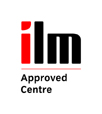Creating a Personal Brand
Creating a unique brand can be based on a person’s own unique qualities. Personal branding is an alternative way of branding your business - a process beyond the logo, a way of getting out of survival mode and turning your business into the business that you know it can be.
A personal brand is a clear idea and expectation that comes to mind when others think of you. It is the powerful way that you communicate and demonstrate what you stand for; your vision, values, skills, passions and attributes.
In building a strong personal brand you are saving not only your clients' time, but also your own time, stress, money and frustration. You will stand out for the uniqueness that you offer - you will not be able to be copied by your competitors. You will have a competitive edge and a magnetic influence that attracts the right kind of people to your business.
Like it or not, the ability to brand yourself has become essential to the way we live and work today. So how do you plan to stand out from the crowd? How could you be seen to add value to your clients?
A unique strong personal brand can offer you
- Greater visibility and credibility
- Distinguishing yourself from your competitors
- Confidence to clearly communicate the elements that make you different
- Creating strong user loyalty - gaining more business
- Evoking the correct perceptions in the mind of your target market
- Creating a brand identity that is compelling, enticing and draws people to you
- Start with personal branding: Your personal brand is the foundation of your business. It defines your business message and what makes it unique. If you were to build a building without a solid foundation, it would fall down and you would have to start all over again. It is just not worth skipping this step in the process.
- Discover your strengths: If you do not start personal branding by discovering key aspects about yourself it will be difficult to build a strong Brand. Your Brand is based on you, so start understanding the things you are naturally gifted at; your strengths, including your skills and past experiences.
- Know your attributes: Successful brands are authentic so it important you discover who you are before you can build your strong brand. Are your attributes communicating the real you? If you are enthusiastic, creative, sociable, forward thinking, and your personal brand is communicating attributes like temperamental and conventional, you are not being consistent.
- Get feedback: Ask yourself: “What are my personal brand attributes or qualities?” We all have positive and negative attributes. Start getting feedback from people in your life. Listen to how people describe you. Are they using the same words? Build up your awareness.
- Identify your vision: One trait of all successful brands, personal or corporate, is that they all had, and have, vision. Vision is what gives you the focus to reach your goals. Your vision is what you see is possible for the world. It is bigger than you or your business.
- Stand for something: Your personal brand must stand for something that is true to you and has relevance in your target market. It will be something you believe in and that is based on your vision and the values you hold.
- Find your passions: When you are starting out people are attracted to your passion. Find out what drives you and what is fuelling you. Do not hide your ideas and enthusiasm as these are a great asset.
- Define your marketplace: Management of a brand takes a solid understanding of the marketplace and target audience. Strong Brands have a promise of value that is of benefit to their target audience; once you define the needs of your target market you can begin to focus on delivering that value at all times.
- Take control: Its time to take responsibility for your own actions instead of following the ideas and visions of others i.e. people in the media, parents, friends, family and peers. Start adding something fresh to your career and life. Gain a new perspective and get in touch with the real you.
- Be distinctive: Stand out from others in your marketplace by creating a brand that is unique to your market. This is the number-one way of having the leading edge over your competitors. Dare to be different - have an edge.
- Take a long-term view: Creating a brand for your business will not happen instantly; it can take months or even years for you develop a brand that is seen as number-one in your industry. Do not rush, take it step by step and get it right.
- Create a design that makes you 'shine': Thread aspects of your personal brand throughout your business. Do not think that your brand identity has to be blank to be professional. Being a faceless corporation with no substance will not create more credibility; people want to see the person or people behind the company.
- Create an emotion: Your brand should evoke an emotion from your target audience. The strength of the brand is about the relationship you have with your target audience and the ability to make a connection. They might experience feelings of nostalgia, feelings of needs being met, a connection to a group they most admire, feelings of control, security, warmth, and many more.
- Remain consistent: Think about your whole brand, from your business card, website, invoices, to your clothing. Are you sending out the same message or are you sending mixed messages?
- Compelling Style: Do not launch until you are the best you can be. Create a brand that compels rather than repels - you only have one chance to make a good first impression. It is the whole brand they well be looking at, not just the logo.
- Establishing yourself as an expert in your field: Expertise can bring you increased recognition and enable you to position yourself as a leading expert within your field. Your knowledge is worth paying more for now.
- Stay visible: If you were to offer the best product, service, experience or price to your target market, but no-one knew you existed, you would not have a business. Your personal brand has to be seen in order to be successful do not be scared to let it out
- Google your name: If you put your name into the Google search engine, what and who is your name associated with? If you do not have an online presence, how are you going to be known? We all have less time and patience - with technology moving so fast, do not get left behind.
- Connect: Have a plan, think strategically, and start to network with a purpose; you will connect with the right people. Get out of your comfort zone; stop networking in the same place in the same ways. Just because you attend an industry event once a month it does not mean that you should stop there.
- Be concise: In a networking event, the aim is to meet people, so do not use 45 words when 4 will convey the message.
- Attract the clients you want: Review your brand. Is the message you sent out at the beginning still relevant? Make sure you have a message that is clear and consistent and that is targeted directly to the people you know, understand and want to do business with.
- Keep raising your profile: If you have not continued to build your reputation you are going to end up blending right in with the thousands of other businesses that are competing for the same clients and customers as you are. You need to start analysing your time and efforts by transforming yourself from a general ‘business owner’ to an expert who is sought-after.
- Become an author: Even if you do not see yourself as a writer, start writing about your subject of expertise. Get articles published on the internet. Start a newsletter or tips page and create added value for your target audience.
- Grow your network: It is not enough to know people - you need to keep expanding your network, and keep adding value to your current network by connecting people.
- Brush up on your skills: Start to develop yourself personally and become an effective business owner with depth. Read books, enrol on courses, hire a coach and find a mentor, and keep yourself ahead of your competition.
- Freshen up: Invest your time and money into developing your brand identity. Review your logo, website and marketing materials on a regular basis. Do not let them get out of date, or you will lose the edge.
- Rediscover your passions: When you have a passion for your business it brings you fulfilment and helps you stay on track when there are challenges. Identify the things that matter to you most, this will help you form an emotional connection with your target audience and you will begin to enjoy more what you do. Think about some of the things, issues and concepts that excite and motivate you: are these things apparent in your business?
- Revisit your vision: One characteristic of successful brands (personal, corporate, or celebrity) is that they all had, and have, a vision. Your vision is what gives you the focus to reach your goals. Ask yourself "What was my initial vision about?", "Where did I want to be?", "Where am I now?" and "What has stopped me?” Now write out your current vision, making sure it is clear and compelling to you and that it fits with where you are now and where you want to be.
- Be understood: Become an effective, charismatic communicator. Keep your message clear; recognise that people do not necessarily understand your industry or the jargon you use.
- Get out of your comfort zone: Become aware of your current situation. Ask yourself “How did I get here?”, “How long have I been doing this?”, “Where am I going next?”. Are your goals moving forward or are you becoming stagnant?
Expert Advice from Dawn Winder, http://www.i-define.co.uk/
Our business coaches are here to help. Find out more about our businesscoaching services or email us at [email protected]to arrange a chat with one of our coaches.





